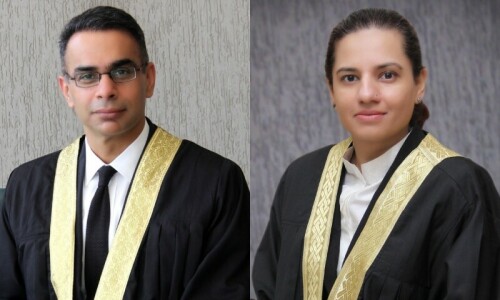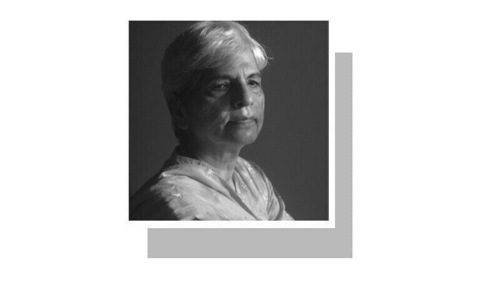
NEW DELHI: Legendary Indian thespian Dilip Kumar died on Wednesday morning after a week in Mumbai’s Hinduja Hospital with breathing trouble.
In an irony befitting his many fabled scripts, Maharashtra Chief Minister Udhav Thackeray, head of the Shiv Sena that once heckled Dilip Kumar as a Pakistani agent, ordered a state funeral for the actor. He also visited the family home at Mumbai’s exclusive Pali Hill district and condoled with Kumar’s grieving wife Saira Banu.
Dilip Kumar, 98, was born in Peshawar in 1922 and named Yusuf Khan. His peers and younger colleagues alike revered the celebrated actor’s actor. Shah Rukh Khan, Anil Kapoor, Anupam Kher, Dharmendra, Shabana Azmi, Ranbir Kapoor and Vidya Balan, among others were the early visitors to condole with Ms Banu, herself a former actor.
Social media was deluged with tributes to Dilip Kumar, remembering the unmatched legacy he left behind in the art of acting.
Thespian given state funeral in Mumbai
Amitabh Bachchan, Salman Khan, Akshay Kumar, Sanjay Dutt, Dharmendra, Ajay Devgan and Lata Mangeshkar, among others mourned Dilip Kumar in heart-warming tweets.
The actor will be best remembered for his roles in films like Madhumati, Devdas, Mughal-e-Azam, Ganga Jamuna, Ram Aur Shyam and Naya Daur in a career spanning over six decades. Dilip Kumar and Saira Banu, who married in 1966, starred together in Sagina Mahato, Gopi, Bairag and Duniya. In India, Dilip Kumar was honoured with the Padma Bhushan in 1991 and the Dadasaheb Phalke Award in 1994.
The first-ever winner of the Filmfare Best Actor prize, he collected eight of these awards, a record he would later share with Shah Rukh Khan.
He passed away at 7:30am, according to Dr Jalil Parkar, who had been treating the actor as he was in and out of hospitals in recent months.
“With a heavy heart and profound grief, I announce the passing away of our beloved Dilip Saab, few minutes ago. We are from God and to Him we return,” family friend Faisal Farooqui posted from the actor’s Twitter handle. Kumar’s debut was in 1944 with Jwar Bhata and his last film was Qila opposite Rekha. It was released in 1998.
Kumar was born in Peshawar to Ayesha Begum and Lala Ghulam Sarwar Khan. He lost his two younger brothers Ahsan Khan, 90, and Aslam Khan, 88, to Covid last year.

Dilip Kumar was buried with state honours at the Juhu Cemetery in Mumbai’s Santacruz on Wednesday evening. The funeral was relatively muted, according to reports, because of Covid restrictions. Only family and close friends attended; most of the actor’s celebrity colleagues paid their last respects at his residence earlier in the day.
Actor Amitabh Bachchan was among the handful of colleagues, who attended the funeral. He was accompanied by his son, actor Abhishek. Mr Bachchan co-starred in 1983 film Shakti. Earlier, Mr Bachchan mourned Dilip Kumar on Twitter in these words: “An epic era has drawn curtains... Never to happen again.”
Filmmaker Subhash Ghai, who directed Dilip Kumar in 1991 movie Saudagar, also attended the funeral with his wife Mukta.
Saira Banu was photographed at the cemetery, surrounded by a support group of well-wishers and police personnel.
“Adieu Dilip Saab. Unknown to you I have been your Eklavya (a devoted disciple).Thank you for the movies. Thank you for the language . Thank you for the dignity. Thank you for being socially responsible. Thank you,” tweeted Shabana Azmi.
Actor Akshay Kumar wrote: “To the world many others may be heroes. To us actors, he was The Hero. #DilipKumar Sir has taken an entire era of Indian cinema away with him. My thoughts and prayers are with his family. Om Shanti”
While the prime minister and the president of India paid rich tributes to the legend, the head of Haryana BJP’s social media and IT wing was slammed by Shiv Sena leader Urmila Matondkar, after he took a crude swipe Dilip Kumar.
In a tweet written in Hindi, Arun Yadav — whose Twitter bio, according to NDTV, says he is the “State IT & Social Media Head” for the BJP in Haryana — said: “The death of Mohammad Yusuf Khan (Dilip Kumar), who earned money by keeping a Hindu name in the film world, is an irreparable loss to the Indian film industry! Deepest condolences to the bereaved family!”
“God give peace to the departed soul,” the tweet continued.
Ms Matondkar, a popular actress who entered politics with the Congress ahead of the 2019 Lok Sabha election, hit back with a caustic three-word tweet, “Shame on you,” she wrote, with a ‘thumbs down’ emoji for added effect.
Prime Minister Narendra Modi took time off from a cabinet reshuffle on Wednesday and offered a tempered tweet. “Dilip Kumar Ji will be remembered as a cinematic legend. He was blessed with unparalleled brilliance, due to which audiences across generations were enthralled. His passing away is a loss to our cultural world. Condolences to his family, friends and innumerable admirers. RIP.”
Published in Dawn, July 8th, 2021













































